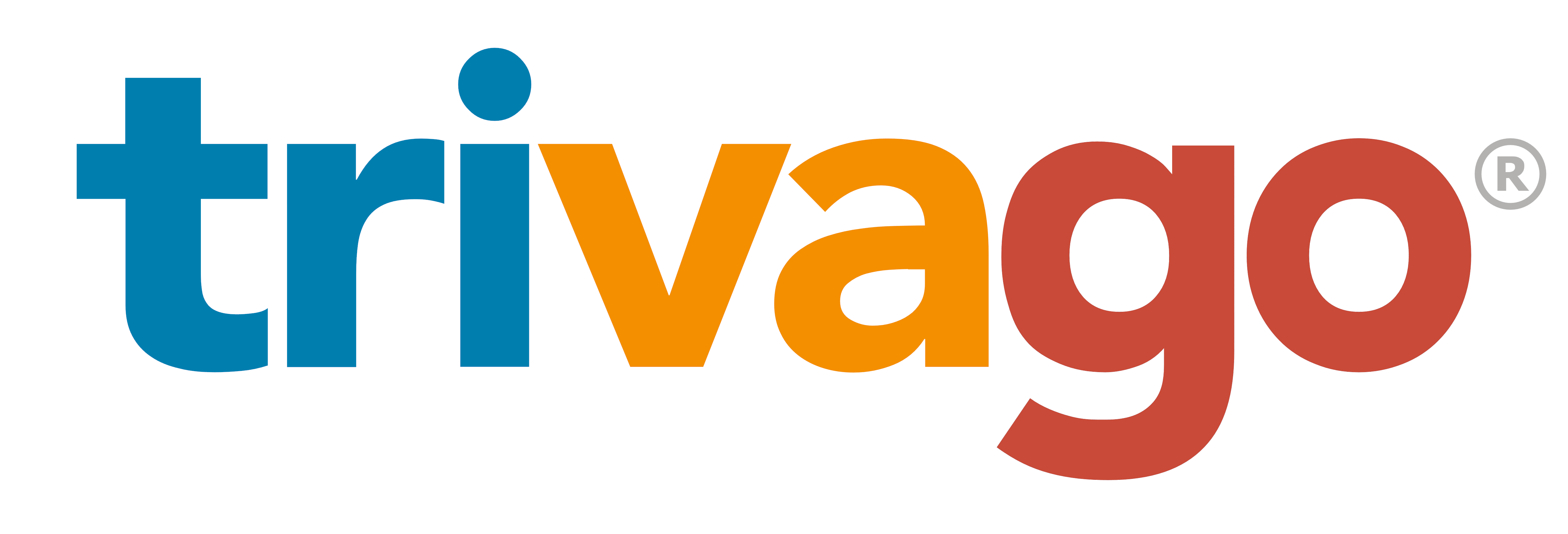The Trivago logo is not just a simple graphic; it represents a significant brand identity in the travel and hospitality industry. As a leading online platform for hotel and accommodation searches, Trivago has successfully established a recognizable logo that conveys its mission and values. In this article, we will explore the various elements of the Trivago logo, its design evolution, and its impact on brand recognition.
The logo serves as a visual representation of Trivago's commitment to providing a seamless user experience for travelers. With the increasing competition in the online travel market, having a distinct and meaningful logo is crucial for standing out. This article will cover the history of the Trivago logo, its design components, and how it aligns with the company's overall branding strategy.
We will also discuss how the Trivago logo has evolved over the years and what it signifies for its audience. Through this comprehensive analysis, readers will gain insight into the importance of logo design in shaping a company's brand identity, particularly within the travel industry.
Table of Contents
- History of the Trivago Logo
- Design Elements of the Trivago Logo
- Color Scheme of the Trivago Logo
- Typography Used in the Trivago Logo
- Evolution of the Trivago Logo
- Impact on Brand Recognition
- Comparison with Competitors
- Future Trends in Logo Design
History of the Trivago Logo
The Trivago logo was first introduced in 2005 when the company was founded in Germany. Initially, the logo featured a more traditional design that included the full name "Trivago" in a bold font. Over the years, as the company expanded and evolved, so did its logo. The first major redesign occurred in 2016, focusing on minimalism and modern aesthetics.
Design Elements of the Trivago Logo
The Trivago logo has several core design elements that contribute to its effectiveness:
- Visual Simplicity: The logo is clean and straightforward, making it easy to recognize.
- Memorable Iconography: The design incorporates a unique icon that represents the brand's focus on travel.
- Versatility: The logo can be effectively used across various mediums, from digital platforms to print.
Color Scheme of the Trivago Logo
The color scheme of the Trivago logo primarily features blue, red, and white. Each color has its psychological implications:
- Blue: Represents trust and reliability, which are crucial for a travel booking platform.
- Red: Conveys energy and excitement, attracting attention.
- White: Symbolizes simplicity and clarity, enhancing readability.
Typography Used in the Trivago Logo
The typography of the Trivago logo is modern and sans-serif, which contributes to the contemporary feel of the brand. The choice of font is crucial as it reflects the brand's personality:
- Readability: The font used is easy to read, ensuring that the brand name is quickly recognizable.
- Professionalism: The clean lines of the font convey a sense of professionalism and trustworthiness.
Evolution of the Trivago Logo
Since its inception, the Trivago logo has undergone several transformations. The most notable changes include:
- 2005-2016: The original logo featured a more complex design with a traditional font.
- 2016-Present: The redesign embraced minimalism, leading to the current logo that emphasizes simplicity and modernity.
This evolution reflects the brand's growth and adaptation to changing market trends.
Impact on Brand Recognition
The Trivago logo plays a significant role in the company's brand recognition. A well-designed logo can enhance brand recall and customer loyalty. Studies show that logos with unique design elements are more likely to be remembered by consumers. The Trivago logo's distinctive features contribute to its effectiveness in this regard.
By consistently using the logo across various marketing channels, Trivago has built a strong brand identity that is easily recognizable worldwide.
Comparison with Competitors
When compared to its competitors in the online travel industry, such as Booking.com and Expedia, Trivago's logo stands out due to its unique design and color scheme. While many travel logos tend to use similar color palettes and fonts, Trivago's approach has helped it carve a niche for itself.
Some key comparisons include:
- Distinctive Colors: Trivago's use of bold colors differentiates it from competitors.
- Modern Typography: The sans-serif font used by Trivago gives it a contemporary look, appealing to younger audiences.
Future Trends in Logo Design
As we look to the future, logo design will continue to evolve in response to changing consumer preferences and technological advancements. Key trends expected to influence logo design include:
- Simplicity: Brands will increasingly lean towards minimalist designs that convey their message clearly.
- Dynamic Logos: Logos that can adapt to different contexts and use cases will become more prevalent.
- Sustainability: Eco-friendly designs and messages will resonate more with consumers concerned about environmental issues.
Conclusion
The Trivago logo is a powerful representation of the brand's identity, values, and commitment to providing an exceptional travel experience. Through its thoughtful design elements, color scheme, and typography, the logo has become a recognizable symbol in the travel industry. As we move forward, it will be interesting to see how Trivago continues to adapt its branding to align with emerging trends.
We encourage you to share your thoughts on the Trivago logo and its significance in the travel industry. Feel free to leave a comment below, and don't forget to check out our other articles on branding and logo design!
Closing
Thank you for reading! We hope you found this article insightful and informative. We invite you to return for more discussions on branding, travel, and design trends.
Building Off The Grid: Big Sky Ranch
Armando From Pitbulls And Parolees: A Closer Look At His Life And Impact
Understanding Uber Estimators: Your Comprehensive Guide


